 Source: Google images approved for reuse
Source: Google images approved for reuse
Many preschool and kindergarten teachers have told me that they are extremely upset—some to the point of being ready to resign—by the increased pressure on them to teach academic skills to little children and regularly test them on such skills. They can see firsthand the unhappiness generated, and they suspect that the children would be learning much more useful lessons through playing, exploring, and socializing, as they did in traditional nursery schools and kindergartens. Their suspicions are well validated by research studies.
A number of well-controlled studies have compared the effects of academically oriented early education classrooms with those of play-based classrooms (some of which are reviewed here, in an article by Nancy Carlsson-Paige, Geralyn McLaughlin, and Joan Almon).[1] The results are quite consistent from study to study: Early academic training somewhat increases children’s immediate scores on the specific tests that the training is aimed at (no surprise), but these initial gains wash out within 1 to 3 years and, at least in some studies, are eventually reversed. Perhaps more tragic than the lack of long-term academic advantage of early academic instruction is evidence that such instruction can produce long-term harm, especially in the realms of social and emotional development.
A Study in Germany that Changed Educational Policy There
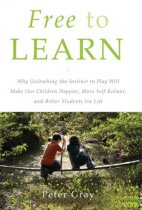 For example, in the 1970s, the German government sponsored a large-scale comparison in which the graduates of 50 play-based kindergartens were compared, over time, with the graduates of 50 academic direct-instruction-based kindergartens.[2] Despite the initial academic gains of direct instruction, by grade four the children from the direct-instruction kindergartens performed significantly worse than those from the play-based kindergartens on every measure that was used. In particular, they were less advanced in reading and mathematics and less well adjusted socially and emotionally. At the time of the study, Germany was gradually making a switch from traditional play-based kindergartens to academic ones. At least partly as a result of the study, Germany reversed that trend; they went back to play-based kindergartens. Apparently, German educational authorities, at least at that time, unlike American authorities today, actually paid attention to educational research and used it to inform educational practice.
For example, in the 1970s, the German government sponsored a large-scale comparison in which the graduates of 50 play-based kindergartens were compared, over time, with the graduates of 50 academic direct-instruction-based kindergartens.[2] Despite the initial academic gains of direct instruction, by grade four the children from the direct-instruction kindergartens performed significantly worse than those from the play-based kindergartens on every measure that was used. In particular, they were less advanced in reading and mathematics and less well adjusted socially and emotionally. At the time of the study, Germany was gradually making a switch from traditional play-based kindergartens to academic ones. At least partly as a result of the study, Germany reversed that trend; they went back to play-based kindergartens. Apparently, German educational authorities, at least at that time, unlike American authorities today, actually paid attention to educational research and used it to inform educational practice.
Source: www.psychologytoday.com
You might also like:





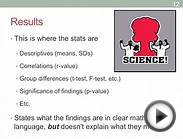




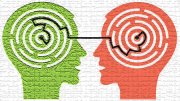
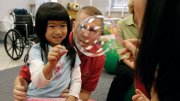


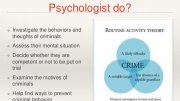
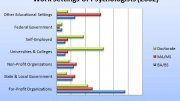







It's the branch of psychology that studies diagnoses and treatment of psychological disorders
Clinical Psychology is a category of psychology. Its most common use is diagnosing mental illness.
Please clarify exactly what information you are requesting. Thanks..